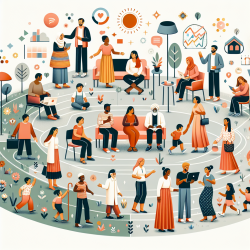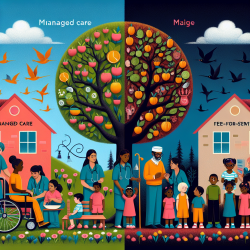Introduction: The Intersection of Social Contexts and Immune Function
As practitioners dedicated to improving children's health outcomes, understanding the intricate relationship between social contexts and immune function is paramount. The research article "Networks, Cultures, and Institutions: Toward a Social Immunology" by Eric C. Shattuck introduces a compelling framework that bridges psychoneuroimmunology with social sciences, offering valuable insights into how social networks, cultural norms, and societal structures influence immune responses.
Understanding Social Immunology
Social immunology is a multidisciplinary approach that examines how social environments impact immune function. It emphasizes the role of social networks, cultural values, and institutional structures in shaping immune responses and vulnerability to infections. This framework highlights the bidirectional relationship between social contexts and immune function, offering a comprehensive understanding of health and disease.
Implications for Practitioners
Practitioners can leverage the insights from social immunology to enhance their therapeutic approaches and improve children's health outcomes. Here are some key takeaways:
- Social Networks: Encourage the development of positive social connections for children. Research shows that strong social networks can bolster immune function and provide emotional support during illness.
- Cultural Sensitivity: Recognize the influence of cultural norms on health behaviors. Tailor interventions to align with cultural values, promoting adherence and positive health outcomes.
- Addressing Social Determinants: Advocate for policies that address social determinants of health, such as access to nutrition and healthcare. These factors significantly impact immune function and overall well-being.
Encouraging Further Research
While the framework of social immunology provides a solid foundation, further research is essential to deepen our understanding. Practitioners are encouraged to explore the following areas:
- Investigate the long-term effects of social networks on immune function in children.
- Examine the impact of cultural norms on health behaviors and immune responses.
- Explore the role of social institutions in shaping health outcomes and immune function.
Conclusion: A Call to Action
By integrating the principles of social immunology into practice, practitioners can make data-driven decisions that enhance children's health outcomes. This approach not only empowers practitioners but also fosters a holistic understanding of health and disease.
To read the original research paper, please follow this link: Networks, cultures, and institutions: Toward a social immunology.










